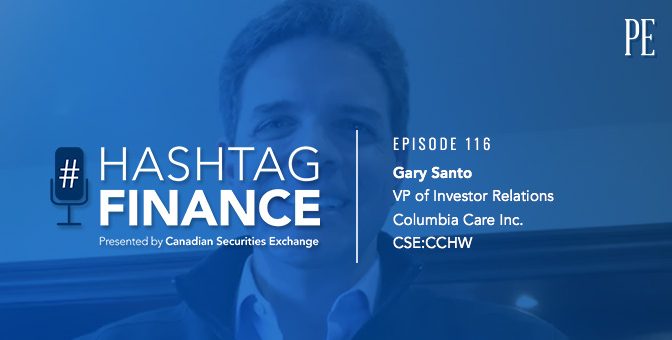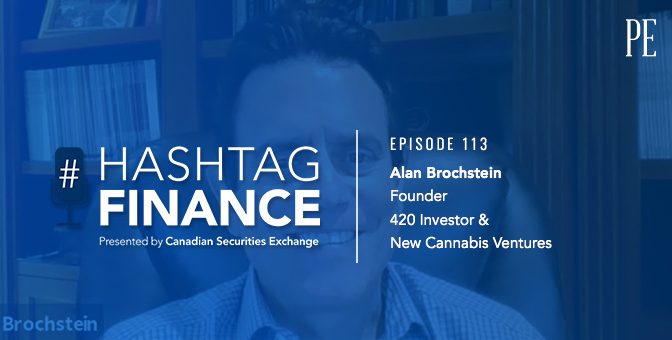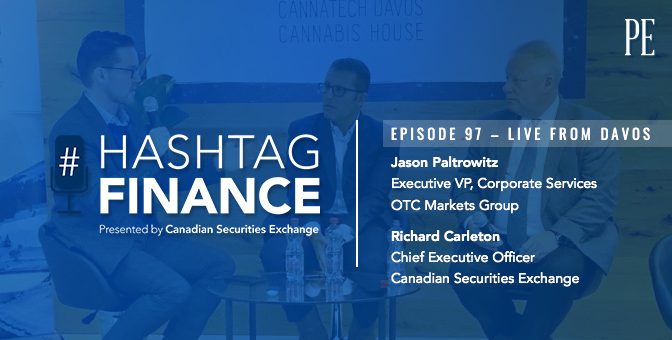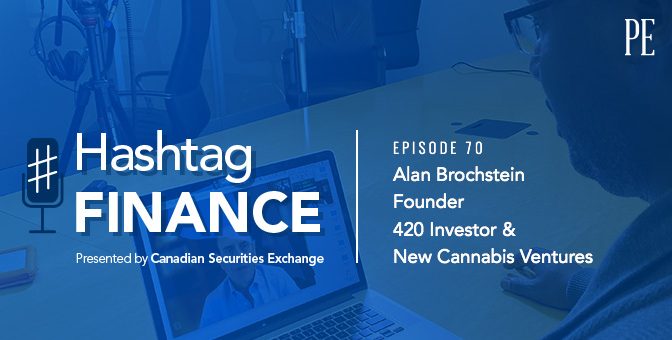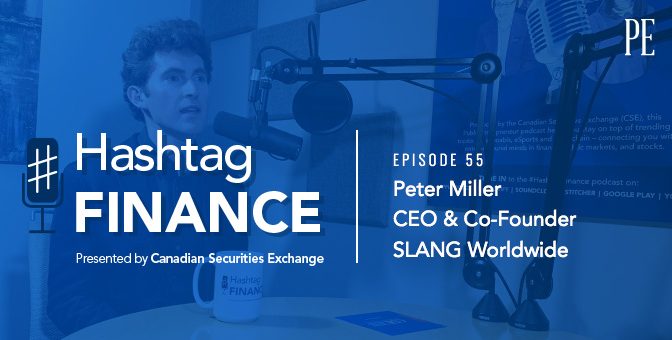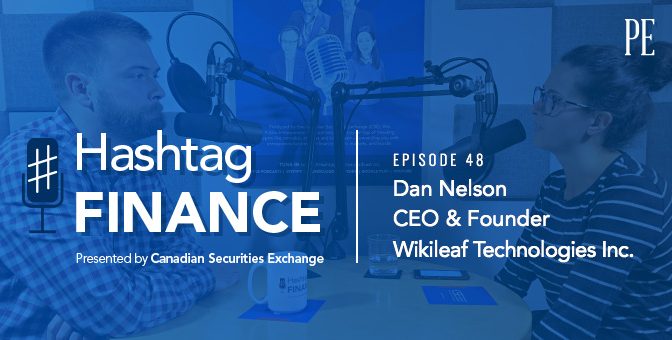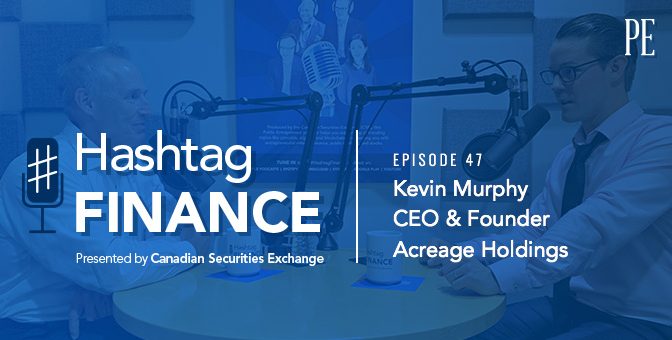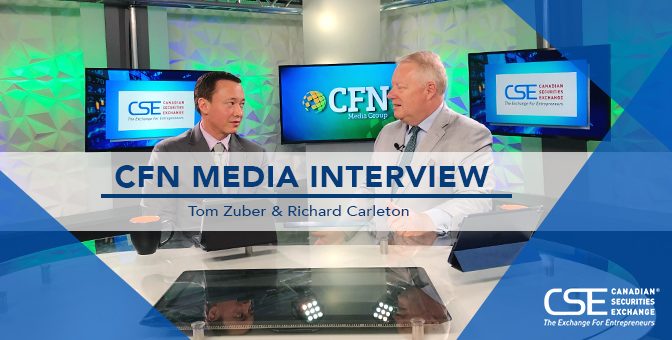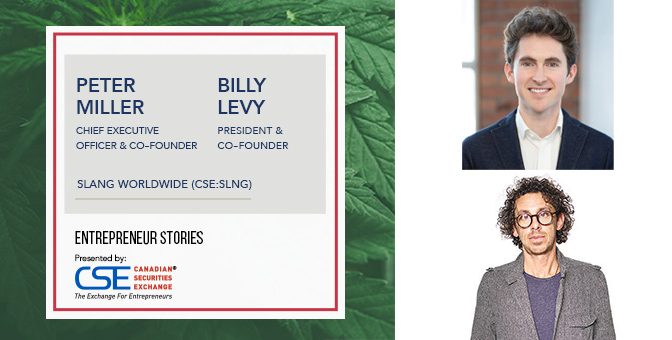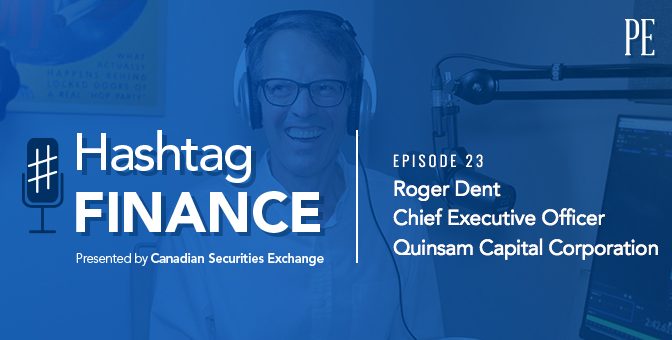The power of a brand is an amazing thing. A good brand touches our heart, gets people to buy more, to pay more, and the best of them can even become everyday words that transcend the boundaries of the company that created them. SLANG Worldwide Inc. (CSE:SLNG) is well aware of this potential and that’s why brands are its thing…lots of brands. Some, such as O.penVAPE, District Edibles, and Firefly rank among the top-performing brands in the entire cannabis industry.
Public Entrepreneur spoke recently with Peter Miller, SLANG’s co-founder and Chief Executive Officer, to explore this fascinating side of the cannabis market. From developing strategies to suit specific jurisdictions to the wisdom of pursuing growth through acquisitions, Miller speaks with the experience of an executive who has been there from the beginning, yet in terms of the potential to take SLANG to new heights is perhaps only just getting started.
Give us a brief introduction to SLANG. How did you and your partner build the company into such a force in the cannabis consumer packaged goods space?
SLANG Worldwide is a consumer packaged goods company that owns, licenses, and markets 11 cannabis brands serving the flower, concentrates, edibles, and beverage categories. Our portfolio is one of the highest selling of all time, as tracked by a third party, with over $250 million in sales at retail. SLANG is a multistate and multinational operator, with brands and products available in over 2,600 retail stores – one of the largest distribution footprints in the cannabis industry. Our brands are more widely distributed than any portfolio I’m aware of. We source biomass, extract it and manufacture it into finished goods with our brands and formulations, then wholesale and distribute to retail accounts. That focus has allowed us to scale quickly and grow to where SLANG is today.
My co-founder Billy Levy and I previously founded a vertically integrated limited-licenses cannabis business in Canada. We came from the tech world and didn’t have a lot of experience in cannabis, so we spent a lot of time visiting markets that were maturing. We got to watch cannabis retail go from unbranded jars of bud to more sophisticated form factors like edibles and vaporizers, which really excited us. Our licensed producer was sold to Canopy Growth and we thought about where we wanted to be, so we started making investments and formalizing partnerships in the US.
SLANG recently launched a CBD-focused health and wellness division. How does this fit within your strategy going forward? Is it better to acquire brands or build them up on your own?
SLANG’s goal is to offer cannabis products to a wide variety of consumers. CBD products have proven to be extremely compelling and popular to consumers, but just producing CBD products doesn’t necessarily guarantee success at the cash register. CBD products require a different set of skills and relationships than THC. We identified a powerful opportunity with Greenlane to distribute our products into retail environments that aren’t your core cannabis retail environments. Greenlane is the largest online and smoke shop distributor in the industry. It represents an exciting go-to-market strategy for us. SLANG will continue to round out the products that we offer within the health and wellness verticals, initially on the inhalable side, and in the near term moving to the edibles side as well.
A number of SLANG products are best sellers. How do you develop these brands into winners? What lessons can be learned from your experience?
No two markets are the same. Canada has strict rules on promotion and advertising, but brands aren’t built solely through promotion and advertising. Brands benefit most from being trusted by customers, and you establish that trust over time. SLANG products have been leading in the most competitive and oldest legal markets in the US. How do we do that? SLANG establishes trust with our retail customers by consistently delivering them exactly what we say we will, which makes them inclined to continue carrying our products on their shelves. You start developing a subconscious attachment between your brand and the consumer. That’s when you really form that close relationship.
SLANG’s head of sales likes to say that the best ability to create a brand is to make it as broadly available as possible. Making our products widely available and then ensuring that our customers are aware of that availability are the keys to developing these brands.
When it comes to the question of organic growth versus acquisitions, which approach do you prefer?
The US is really a series of markets within a market. Each state is at a different point in its market maturity, so you have to use a tailored approach. In the more mature states like Washington or Colorado, we can look at acquiring brands that are proven winners that have been operating at scale for years in competitive environments. In new markets, it’s difficult to say who’s going to win it all. The deal SLANG announced with Arbor Pacific in Washington and Oregon was a situation where we were picking winners.
When we looked at other exciting markets like Florida, which is a limited-license market, it wasn’t as simple as picking a winner, so we decided to grow organically through a partnership with Trulieve, the largest retailer in the state.
Trulieve is an example of how we go about buying into a market. Instead of acquiring a Florida operator, we partnered with one who would help us get our brands on the shelf in the near term. SLANG can help drive more customers to their stores to buy our brands, but we could also help support and share our product knowledge with them. We’ve been extracting cannabis for many years and can help them avoid some of the pitfalls of starting an extraction unit. We saw that as the best way to address new markets that are limited license.
What do you think makes the most sense for shareholders in the current environment?
As this market continues moving toward a consumer packaged goods framework, investors will pay close attention to branded unit sales. It is the most apples-to-apples way to understand the competitive landscape. How are consumers voting with their dollars and whose brands are driving the most sales? Consumers spent $32 million on SLANG branded products in the quarter.
Another key metric for investors is branded servings, which measures the number of experiences consumers have with cannabis brands. Quantified by 5mg servings, 52 million SLANG branded servings were purchased by customers in Q1. By branded servings sold, SLANG is one of the largest cannabis companies in the world.
How can investors make sense of the frenetic pace of M&A activity that’s going on in the sector right now?
There’s always going to be the temptation of the new shiny object and the trend of the moment. I think investors need to look at the kinds of assets people are putting together and support a cohesive thesis and strategy, rather than just looking at revenue figures or exciting markets and thinking it will be better together. In fact, it’s rarely the case if you look at M&A across other industries historically. It’s easy to get distracted. I think it’s important to make sure that there’s a central mission or strategy around all the M&A.
What are a few upcoming catalysts for SLANG shareholders?
I’m incredibly encouraged by the macro tailwinds we see in our industry, generally, but as each state-level market matures, we’re seeing validation of the SLANG business model. From the manufacturing process through the marketing of finished goods, SLANG’s business is scalable, capital efficient, and its success is repeatable in new markets. In fact, our business model improves with more competition, meaning the more retailers that open their doors, the more points of sale for our brands. Our business model lends itself to growing with the industry and we’re doing everything possible to grow more quickly than the broader industry. All the catalysts we have a line of sight on right now provide net benefits to our business model and our strategy.
Is there anything you’d like to add?
SLANG’s business model is simple and focused on sourcing biomass. We’re extracting and formulating it into finished goods and distributing our brands to as many stores as possible. It’s the same business model that has allowed some of the biggest consumer package goods companies in the world to scale up operations. A level playing field, in terms of regulation and unit economics, will only highlight our approach and the value of our brand portfolio.
This story was originally published at www.proactiveinvestors.com on June 19, 2019 and featured in the Public Entrepreneur magazine.
Learn more about SLANG Worldwide at https://www.slangww.com/.

